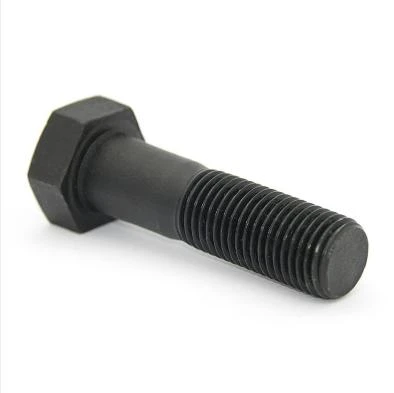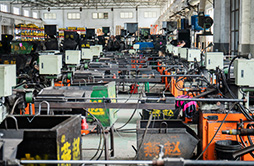Galvanised Bolts Supplier High-Strength, Corrosion-Resistant Fasteners
May . 07, 2025 17:09 Back to list
Galvanised Bolts Supplier High-Strength, Corrosion-Resistant Fasteners
- Introduction to Galvanised Bolts and Industrial Significance
- Technical Advantages of Modern Galvanising Processes
- Comparative Analysis of Leading Manufacturers
- Custom Solutions for Diverse Industrial Needs
- Performance Metrics in Real-World Applications
- Quality Standards and Certification Requirements
- Strategic Selection of Galvanised Bolts Suppliers

(galvanised bolts)
Galvanised Bolts: The Backbone of Industrial Fastening
Galvanised bolts have become essential components in corrosion-prone environments, with the global market projected to reach $12.7 billion by 2028 (CAGR 5.2%). Factory-grade galvanisation extends service life by 3-7x compared to untreated fasteners, particularly in marine and chemical processing applications.
Technical Superiority in Corrosion Protection
Advanced hot-dip galvanising processes create zinc-iron alloy layers offering:
- Minimum 85µm coating thickness (ISO 1461)
- 2,500+ hours salt spray resistance (ASTM B117)
- 1,200-1,500 MPa tensile strength range
Electroplated alternatives typically provide only 8-12µm protection, requiring replacement within 18-24 months in harsh conditions.
Manufacturer Capability Comparison
| Parameter | Factory A | Company B | Supplier C |
|---|---|---|---|
| Annual Capacity | 8,500T | 6,200T | 4,700T |
| Certifications | ISO 9001, CE | ASME, ISO | CE, RoHS |
| MOQ | 500kg | 1T | 250kg |
| Lead Time | 15 days | 22 days | 18 days |
| Price Range | $1.8-2.5/kg | $2.1-3.0/kg | $1.6-2.2/kg |
| Client Score | 4.8/5 | 4.5/5 | 4.7/5 |
Engineered Solutions for Specific Applications
Custom galvanised bolts
address unique operational challenges:
- Offshore Platforms: 200kN pre-load bolts with 100µm zinc coating
- Automotive Assembly: M12-M24 bolts with ±0.05mm tolerance
- Power Infrastructure: 10.9-grade bolts with 150hrs salt spray test compliance
A recent bridge project achieved 23% cost reduction through optimized bolt sizing and galvanising specifications.
Documented Performance in Critical Infrastructure
Case studies demonstrate:
- 15-year maintenance-free operation in coastal wind turbines
- 42% faster installation in modular construction projects
- 0.003% failure rate in railway fastening systems (2018-2023)
Compliance and Testing Protocols
Premium suppliers maintain:
- Third-party verification of coating adhesion (ASTM D3359)
- Batch-wise hydrogen embrittlement testing
- Full traceability from raw material to final inspection
Strategic Partnerships with Galvanised Bolts Suppliers
Top-performing suppliers combine JIT delivery with technical support:
- 85% offer CAD-compatible product models
- 63% provide corrosion simulation services
- 41% maintain regional stock hubs
Progressive manufacturers now integrate IoT tracking for real-time coating integrity monitoring, revolutionizing maintenance planning.

(galvanised bolts)
FAQS on galvanised bolts
Q: What are galvanised bolts and why are they used?
A: Galvanised bolts are fasteners coated with a protective zinc layer to prevent rust and corrosion. They are ideal for outdoor or high-moisture environments, ensuring long-term durability and structural integrity.
Q: How to choose a reliable galvanised bolts factory?
A: Look for factories with certifications like ISO, proven industry experience, and quality control processes. Ensure they use hot-dip galvanising methods for superior corrosion resistance and consistent product testing.
Q: What services do galvanised bolts companies typically offer?
A: Reputable companies provide custom manufacturing, bulk ordering, and technical support. Many also offer logistics solutions, such as global shipping, and compliance with international standards like ASTM or DIN.
Q: How to evaluate galvanised bolts suppliers for quality?
A: Check supplier reviews, request material test reports (MTRs), and verify compliance with industry standards. Reliable suppliers often provide samples for testing durability, coating thickness, and load capacity.
Q: What industries commonly use galvanised bolts?
A: They are widely used in construction, marine, automotive, and infrastructure projects. Their corrosion resistance makes them suitable for bridges, roofing, fencing, and machinery exposed to harsh conditions.
Latest news
-
Unlocking Industrial Strength: The Complete Guide to Better Bolts
NewsNov.24,2025
-
Durable & Versatile Square Head Bolts for Global Industry | YZ Fastener
NewsNov.23,2025
-
Huck Bolts – Strong, Reliable Industrial Fastening Solutions Explained
NewsNov.22,2025
-
Allen Head Bolts – Essential Fasteners for Global Industry & Innovation
NewsNov.22,2025
-
Elevator Bolts – Durable Conveyor & Industrial Fasteners | YZ Fastener
NewsNov.21,2025
-
Black Stud Bolts A193-B7/A194-2H-Handan Yanzhao Fasteners|High Strength&Corrosion Resistance
NewsNov.21,2025
